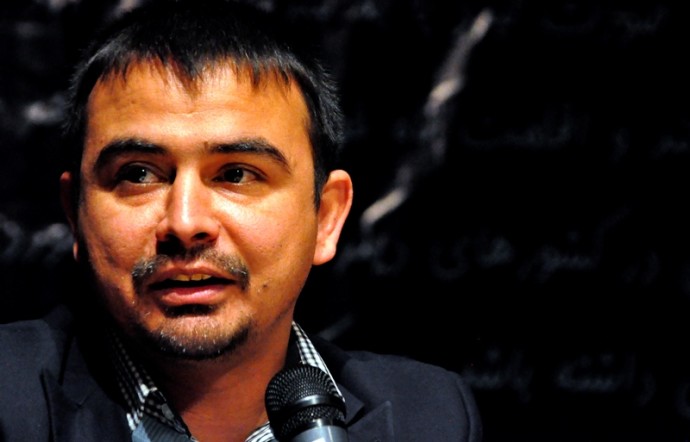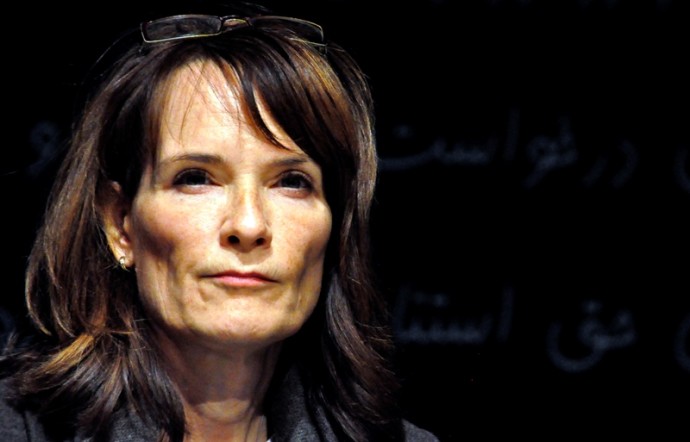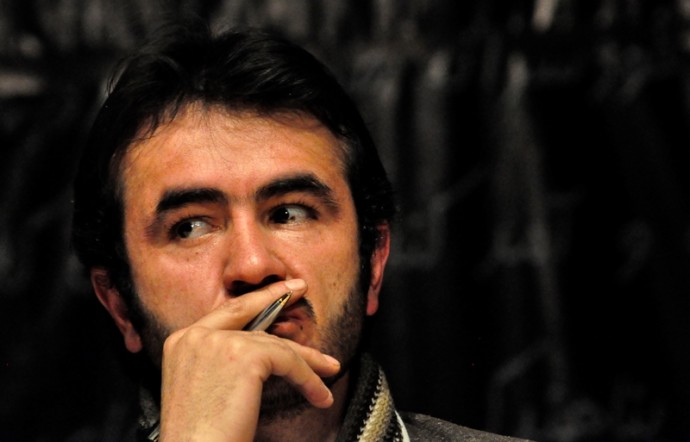On December the 10th 2013, fourth day of Celebration Week of Human Rights day (7-11 Dec 2013), Armanshahr Foundation and the Institut français d’Afghanistan (IFA) in Kabul jointly held a round table entitled “Custody policies and the respect for human rights: how to put an end to impunity? Why is transitional justice not implemented”? A large number of activists, writers, students and citizens took part.
Mr Azariyoun Matin, Human rights and transitional justice activist and director of Human Rights Focus Organisation, who chaired the meeting, said in his opening remarks: “With the emergence of the new system in our country, we tried to identify the Transitional justice (TJ) concepts and use them for implementing the criminal code. However, we never attempted to identify the status of TJ in our society. We failed to find an exact correlation between transitional justice and our heavily tyrannised society. We didn’t know which mechanisms of TJ are practicable in Afghanistan. What was promoted in the name of reconciliation by the government of Afghanistan was reconciliation between the warring parties in the country not between the war criminals and the people. Such reconciliation will ultimately culminate in favour of the gun wielders and war criminals rather than war victims. There will be no enduring peace so long as the issue of transitional justice has not been resolved for the people.
Mr Matin then asked Mr Khodadad Bisharat, director of Human Rights and Democracy Organisation and initiator of the War Victims Memories Box, to relate his experience in respect of bringing the voice and demands of war victims to the public.
Mr Bisharat said: “Transitional Justice has five main components: judicial prosecution, reparation and redress, administrative reforms, seeking truth and memorializing. Some steps have been taken in respect of the first component. The judiciary has managed to bring to trial at least the second and third degree war criminals. In respect of reparation, the Ministry of Labour and Social Justice has established some pensions for families of the victims. In respect of the third component, administrative reforms, there have been some attempts to purge the Administration, at least at the lower ranks, from the warlords and criminals. A committee consisting of local and state officials has also been appointed to pursue and oversee appointments, but it has not done a remarkable job. Among those five components, however, the fifth component, i.e. seeking truth, has not got a chance.”
“The TJ process is strongly government-centred. However, there is no willpower within the government to establish justice. Therefore, no steps have been taken to seek truth. I believe, absence of a deep and structural analysis of the wars of the past, perpetrators of the wars, conditions of the victims at that time and absence of proper knowledge of the demands and goals of war victims have marginalised transitional justice”
The next speaker, Ms Georgette Gagnon, Director of UNAMA Human Rights Unit, said: “In the process of supporting civilians, we have collected a list of war victims and war survivors of the past few decades. This is crucial for the TJ process. In my opinion, this will help to document the war crimes. However, Transitional justice is a long-term process and we should not expect early results.”
Mr Jawad Darwaziyan, human rights specialist of Armanshahr Foundation, began his presentation with a narrative of the complaints of the war-afflicted people and in particular the victims of the three-decade wars in Afghanistan. He said: “If there were an institution to collect the narratives of the victims, complaints against the violators of human rights, complaints against the government’s breaches and the complaints against the terrorists, it may collect millions of complaints. I have witnessed groups of victims who came from the most remote parts of the country to Kabul to make their voices heard, through the mass media, by the government and its international partners. Those complaints has had no outcome except that the government forgot its Plan of action; the Parliament approved the Reconciliation and General Amnesty Law, which was signed by the president. The General Amnesty Law uprooted the war victims in Afghanistan.”
In the question and answer part of the meeting, Mr Matin asked Mr Bisharat about the role of civil society in the Transitional justice process. The latter answered: “When I speak of balance in the demands, it does not mean that only the government is the sole responsible for implementation of the Transitional justice process. In my opinion, civil society plays a crucial role in the Transitional justice process. Civil institutions can play an active role in convening meetings and conferences. They are responsible of disseminating information about the victims of the wars of the past three decades. Civil society can offer an alternative plan to the official plans of the government and to oblige the Parliament to accept its demands.”
One of the participants asked Mr Darwaziyan: “Are there practical mechanisms available to the civil society to protect the rights of the victims?”
Mr Darwaziyan answered: “The civil society can use the international institutions, Afghanistan’s obligations under the international treaties as well as the international courts to make its voice heard by all and to exert pressure on the international community to create a suitable climate to fulfil justice.”






